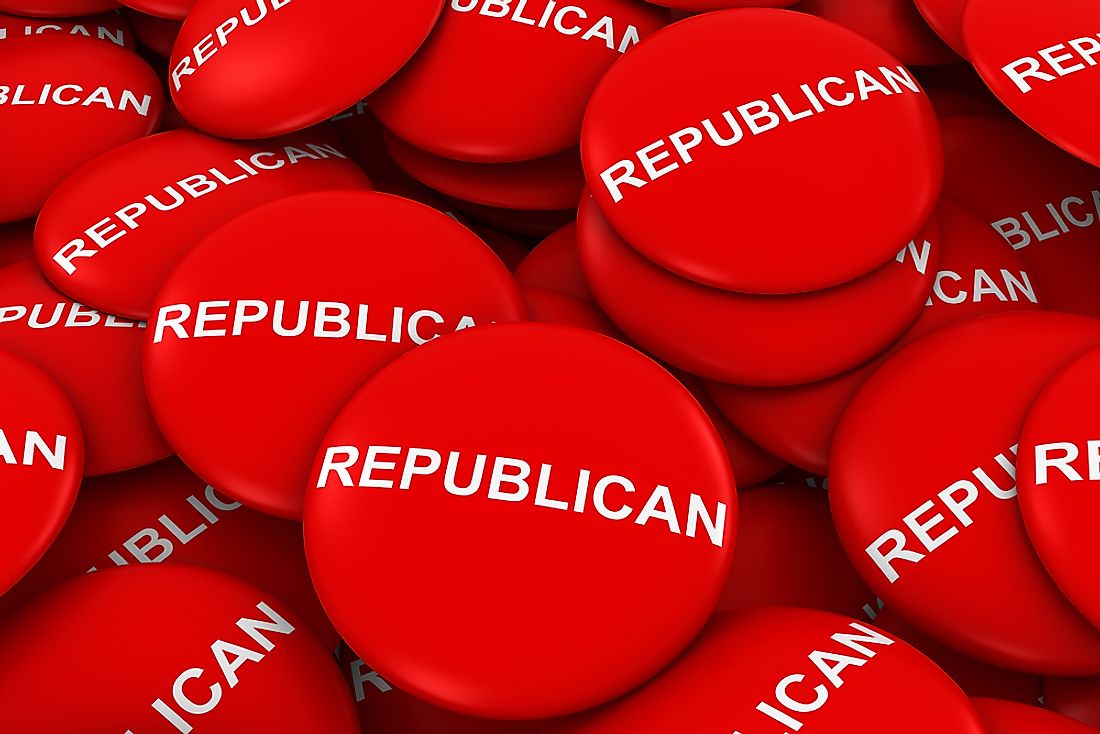Strongest Republican Party States In The U.S.

In a trend that has been noted for some time now, the further one moves in from either coast of the United States towards, coming across geopolitical Republican strongholds becomes more and more frequent. The advantages represented below are in terms of % Republican-leaning minus % Democrat-leaning. For example, 59% of Wyoming's populace leans Republican, compared to 23% Democrat, to give a 36% absolute differential advantage. This data is according to Gallup Daily Tracking Polling conducted across all 50 states.
10. Nebraska (11% advantage)
Holding five votes in the Electoral college, Nebraska is a reliably Republican state that has not voted for a Democratic U.S. Presidential candidate since Lyndon B. Johnson in 1964. However, since Nebraska is only one of two states that distributes electoral votes proportionally between candidates, its conservative influence in Presidential elections is diluted. In May of 2015, Nebraskans voted to repeal the death penalty in their state, considered an unusual move for staunchly conservative Republicans.
9. North Dakota (11% advantage)
Most North Dakotans are of Scandinavian descent and relatively wealthy, and most of the state’s money comes from the oil industry. However, the state is becoming more moderate, as the number of people identifying as conservative in the state dropped from 49% in 2010 to 41% in 2014. Recently, voters failed to pass several Republican-sponsored initiatives, including a “personhood amendment” that would effectively end access to abortion services.
8. Tennessee (11% advantage)
Tennessee is the 4th most Protestant state in the nation, which likely accounts in part for its large Republican advantage. Its state legislature is 74% Republican, and its congressional representatives are 77% Republican. The state has no state income tax, and instead receives most of its revenue from a sales tax that is higher than national norms.
7. Kansas (12% advantage)
Kansas has a longstanding conservative history, including strongly opposing Communism during the Cold War and hosting many anti-abortion rallies in the 1990s. In 2010, voters elected Republican Governor Sam Brownback, who himself had many radical ideas meant to turn Kansas into a “conservative experiment.” He worked to cut taxes and government spending, particularly on education. Results have been mixed, though the state remains solidly Republican.
6. Alabama (14% advantage)
Alabama is the most Protestant state in the nation, and continues to support such conservative policies as strict immigration laws, minimal gun regulations, and anti-abortion laws. Its most conservative county, Blount County, is 93% white, and 86% of its voters cast their ballots for Republican Presidential candidate Mitt Romney in 2012.
5. Montana (18% advantage)
Montana is more polarized than many Republican states, as rural areas remain largely conservative while urban areas are becoming increasingly liberal. Many blue collar jobs in Montana have been affected by factory closings and other economic problems, causing disillusionment with liberal labor unions and other Democratic institutions. Montana is also home to many older voters and Evangelicals, two groups that tend to vote Republican.
4. South Dakota (18% advantage)
South Dakota is another historically Republican state that has not voted in majority for a Democrat Presidential candidate since 1964. Most of the Republicans in South Dakota are baby boomers (those born from 1946 to 1964), and nearly half have only a high school diploma. 91% of these are white, and 92% identify as Christians.
3. Idaho (25% advantage)
In Idaho, richer people are very politically active, which causes the state to be more Republican. Most of these rich voters care most about fiscal issues, and they are worried about budget deficits, and want lower government spending to avoid financial troubles. There has also been a recent push for more charter schools in place of public schools.
2. Utah (33% advantage)
Utah is known for being home to the nation’s densest Mormon population, and 67% of its people identify as Mormon. Because of this, many of the people are very socially conservative, opposing movements such as legalized abortion and legalized gay marriage. Utah is demographically urban, but the Mormon proclivities towards conservatism overcomes the urban tendency towards liberalism seen elsewhere.
1. Wyoming (36% advantage)
Wyoming is considered one of the most Conservative states, which is often attributed to its concurrently large Rural, White, and Evangelical populations relative to the state's demographics as a whole. It has an energy-based economy, which further draws Conservative, "blue collar workers" from surrounding states. Ironically, though most Conservatives believe in "limited government", this state also receives the most Federal money per capita because of royalties from oil drilling and other energy industries. Furthermore, the Federal government owns half of the land in the state, mostly in the form of National Parks.







